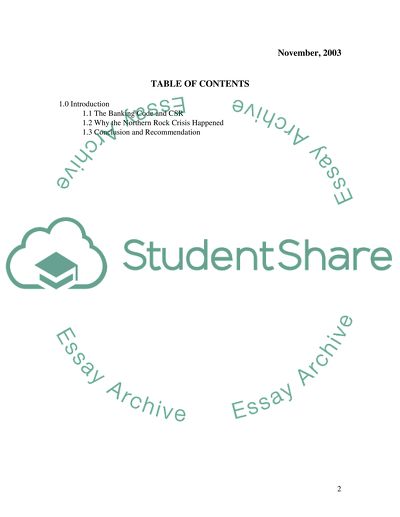Cite this document
(The Banking Code and CSR Case Study Example | Topics and Well Written Essays - 1500 words, n.d.)
The Banking Code and CSR Case Study Example | Topics and Well Written Essays - 1500 words. Retrieved from https://studentshare.org/finance-accounting/1549888-given-the-existence-of-corporate-governance-codes-based-presumably-on-some-ethical-considerations-among-british-plcs-why-do-we-still-observe-crises-and-failures-of-for-example-the-northern-rock-type
The Banking Code and CSR Case Study Example | Topics and Well Written Essays - 1500 words. Retrieved from https://studentshare.org/finance-accounting/1549888-given-the-existence-of-corporate-governance-codes-based-presumably-on-some-ethical-considerations-among-british-plcs-why-do-we-still-observe-crises-and-failures-of-for-example-the-northern-rock-type
(The Banking Code and CSR Case Study Example | Topics and Well Written Essays - 1500 Words)
The Banking Code and CSR Case Study Example | Topics and Well Written Essays - 1500 Words. https://studentshare.org/finance-accounting/1549888-given-the-existence-of-corporate-governance-codes-based-presumably-on-some-ethical-considerations-among-british-plcs-why-do-we-still-observe-crises-and-failures-of-for-example-the-northern-rock-type.
The Banking Code and CSR Case Study Example | Topics and Well Written Essays - 1500 Words. https://studentshare.org/finance-accounting/1549888-given-the-existence-of-corporate-governance-codes-based-presumably-on-some-ethical-considerations-among-british-plcs-why-do-we-still-observe-crises-and-failures-of-for-example-the-northern-rock-type.
“The Banking Code and CSR Case Study Example | Topics and Well Written Essays - 1500 Words”. https://studentshare.org/finance-accounting/1549888-given-the-existence-of-corporate-governance-codes-based-presumably-on-some-ethical-considerations-among-british-plcs-why-do-we-still-observe-crises-and-failures-of-for-example-the-northern-rock-type.


